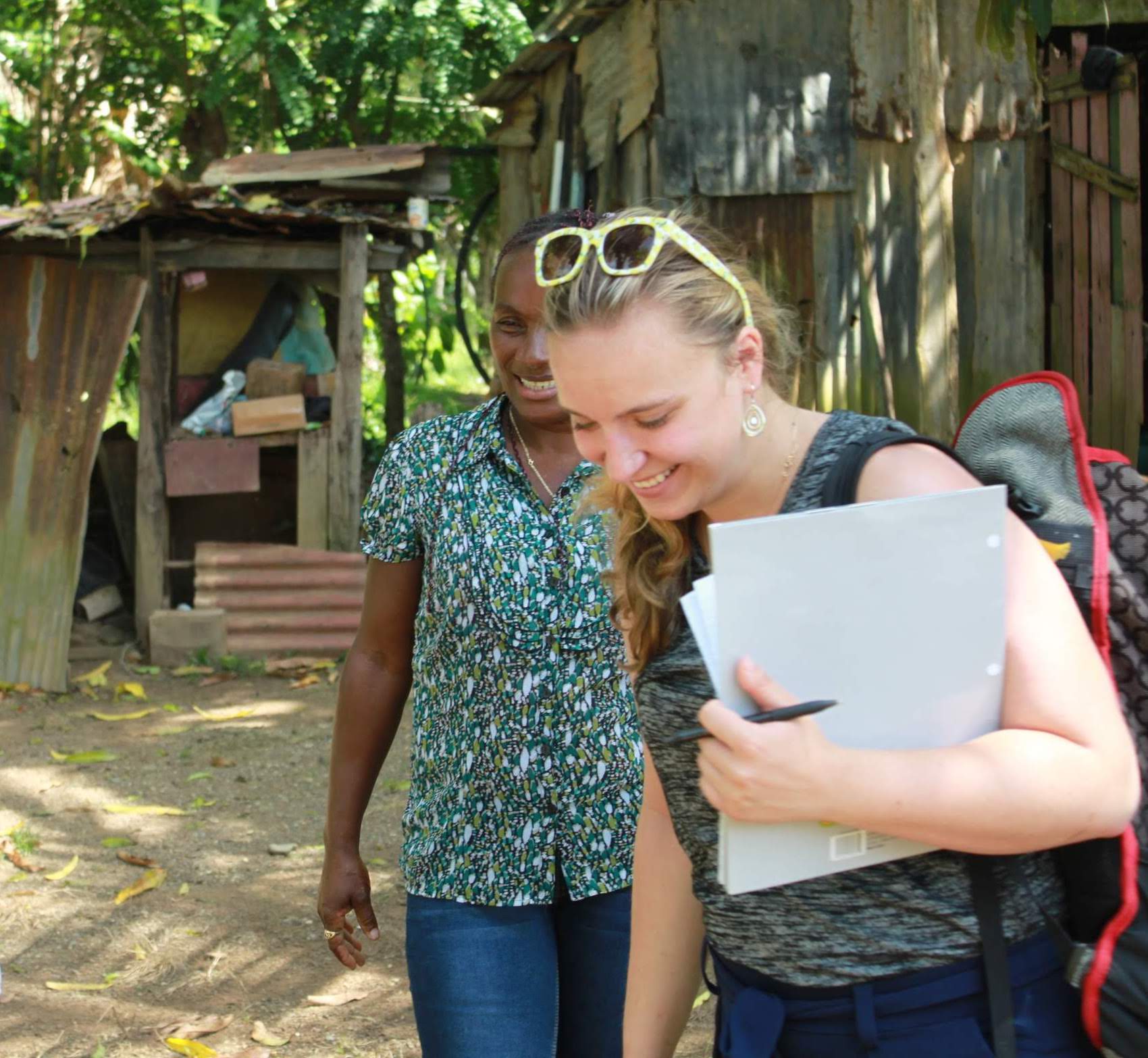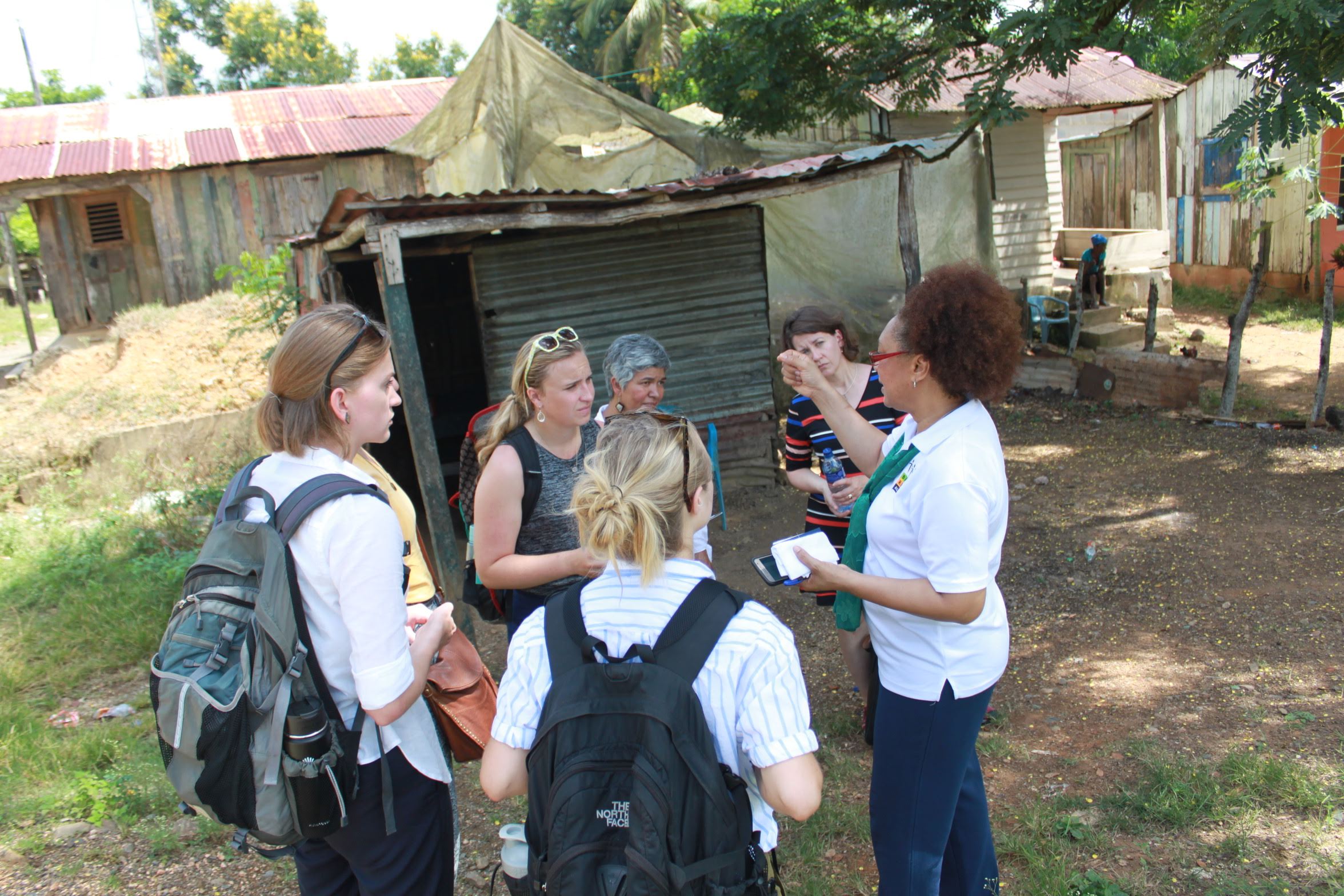This piece is part of a five part series of Student Spotlights highlighting the applied practice experience of four students in the Dominican Republic during the Summer of 2018. The other four parts of the series include an interview by Elizabeth Stanczyk and experience reflections from Shelby Panttaja, Hannah McNamee, and Keelin Roche. #UMNMCH student Elizabeth Stanczyk (MPH ‘19) wrote this reflection on how they developed a survey to measure women empowerment in historically marginalized communities.

Background and Previous Experience
As a former Spanish Teaching major, I have always prioritized expanding my horizons and developing my skills through international experiences. One of the main reasons I decided to pursue a Master of Public Health was due to its versatility and ability to support vulnerable populations in various communities: in rural and urban settings–domestically and internationally. I had the opportunity to do my applied learning experience with the Batey Relief Alliance (BRA) in the Dominican Republic thanks to the extraordinary efforts of fellow MCHer Shelby Panttaja (MPH ‘19) and MCH faculty Drs. Bonilla and Demerath. I was extremely fortunate to sign up for the trip fairly last minute and work alongside incredible people to develop an evaluation tool for BRA’s Women Empowerment Initiative (WEI).
About the Project
In the summer of 2017, I had the opportunity to travel to the Dominican Republic for the first time with a group of church members from my father’s parish, which has an ongoing relationship with a sister parish in southern Dominican Republic. As I had spent a couple weeks there in a house stay, I had a vague understanding about the numerous challenges faced in this Caribbean country. However, that initial trip did not begin to uncover all the complexities that I further discovered through my month with the BRA in the summer of 2018.
 The BRA has been a successful non-profit organization for over twenty years, with the mission “to help create a safe, productive and self-sufficient environment, through health care, food security, education, disaster relief, and community development programs, for children and their families severely affected by extreme poverty, disease, and hunger in the United States, Latin America and the Caribbean.” Originally, BRA helped build clinics in historically marginalized communities called bateyes across the Dominican Republic, but has recently shifted their model to focus on a more primary prevention approach through their Women Empowerment Initiative. In this initiative, they provide micro-loans of around $100 USD to women to raise livestock, crops, and/or sell other goods. This initiative is relatively new, so BRA found that its partnership with the MCH Program would be optimized through the creation of an evaluation tool of the new program.
The BRA has been a successful non-profit organization for over twenty years, with the mission “to help create a safe, productive and self-sufficient environment, through health care, food security, education, disaster relief, and community development programs, for children and their families severely affected by extreme poverty, disease, and hunger in the United States, Latin America and the Caribbean.” Originally, BRA helped build clinics in historically marginalized communities called bateyes across the Dominican Republic, but has recently shifted their model to focus on a more primary prevention approach through their Women Empowerment Initiative. In this initiative, they provide micro-loans of around $100 USD to women to raise livestock, crops, and/or sell other goods. This initiative is relatively new, so BRA found that its partnership with the MCH Program would be optimized through the creation of an evaluation tool of the new program.
My Role
Upon our arrival, we did not have a lot of expectations for our project, except that we should not have many expectations. The constant necessity to adapt occurred immediately when we assisted BRA in conducting interviews in a rural community to determine their needs and background for a funding application to the Canadian government. Although we felt unprepared to perform such a task—with our Spanish rusty and have only spent about 48 hours in the Dominican—it proved to be such a beneficial experience for the development of our survey. We used those interactions and questions in the initial draft of the evaluation tool. From that experience and our extensive literature review led by Keelin Roche (MPH ‘19), we decided on four indicators of women empowerment: income/access to resources; nutrition and hunger; self-capacity; and sexual health. Originally, we attempted to create a questionnaire surrounding these indicators by researching evaluation tools previously created for other micro-loan programs, along with similar questions from our first interview experience.
 Once we created our original survey, we worked closely with Program Coordinator Matilde Marcial, who mainly helped us adjust the language. Not only did we need to translate from our native language to Spanish, but we also needed to make sure it used colloquialisms and had an appropriate language level considering the majority of women with whom we interacted did not have greater than an 8th grade level education. After that meeting, we 1) performed multiple interviews in the bateyes, 2) reflected on the interactions, 3) made adjustments, and repeated those steps at least twice more. It took awhile, but by our final draft, we had so many more insights through our interviews as the questions became more meaningful. In the final step of the creation of the tool, we attached a point system which equally weighed each section to quantitatively determine the levels of empowerment.
Once we created our original survey, we worked closely with Program Coordinator Matilde Marcial, who mainly helped us adjust the language. Not only did we need to translate from our native language to Spanish, but we also needed to make sure it used colloquialisms and had an appropriate language level considering the majority of women with whom we interacted did not have greater than an 8th grade level education. After that meeting, we 1) performed multiple interviews in the bateyes, 2) reflected on the interactions, 3) made adjustments, and repeated those steps at least twice more. It took awhile, but by our final draft, we had so many more insights through our interviews as the questions became more meaningful. In the final step of the creation of the tool, we attached a point system which equally weighed each section to quantitatively determine the levels of empowerment.
Although I feel very confident the evaluation tool will change drastically in the next four summers while other UMN MCHers will utilize their expertise to make improvements, I am extremely proud of the work we performed while in the Dominican Republic. Something feels so special about being part of the first group of this profound partnership, and I believe that our hard work will serve as a strong foundation for the groups to come. I look forward to applying all that I learned in this experience in my future professional career and to observing how this relationship continues to grow.
Elizabeth Stanczyk is a second year MCH student at the UMN, and is a Research Assistant for the Center for Education Leadership in Maternal and Child Public Health. She completed her undergraduate career at Gustavus Adolphus College in Spanish Teaching.
Read Student Spotlight Archives
Interested in learning more about getting a degree in Maternal and Child Health? Visit our MCH Program page for more information.
#UMNMCH #UMNProud #UMNDriven